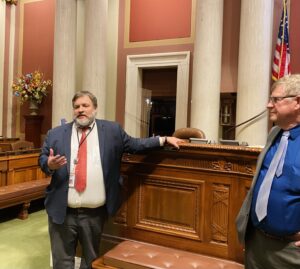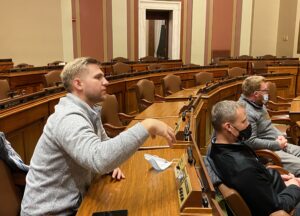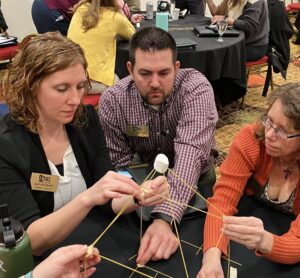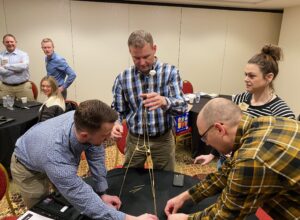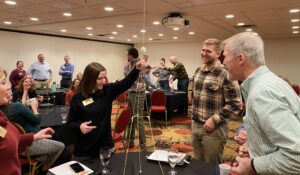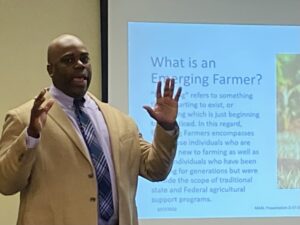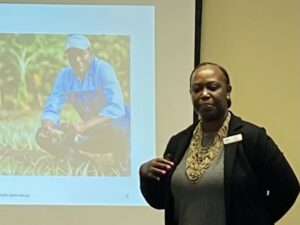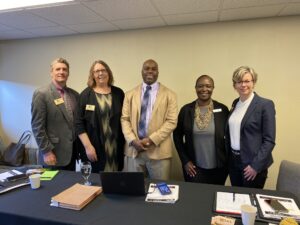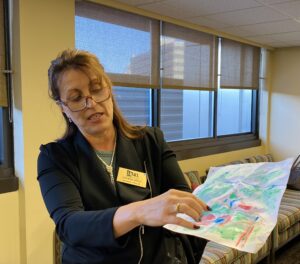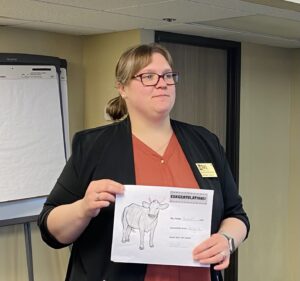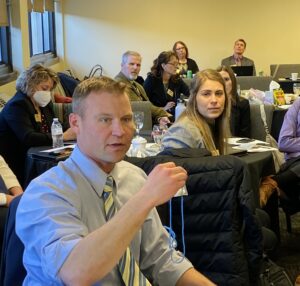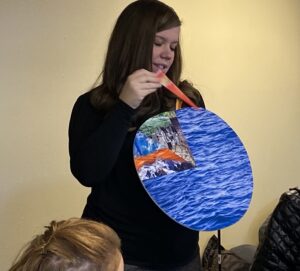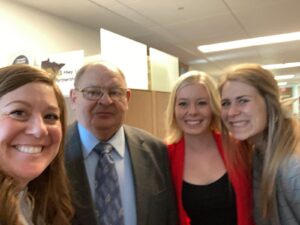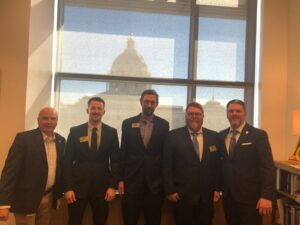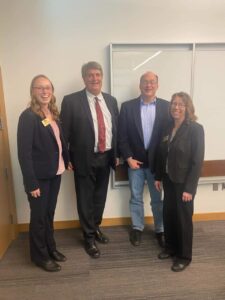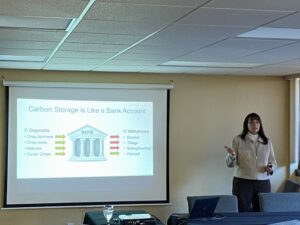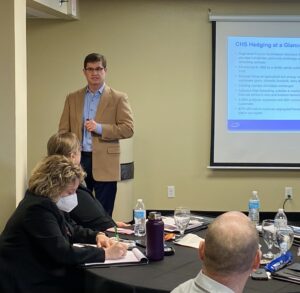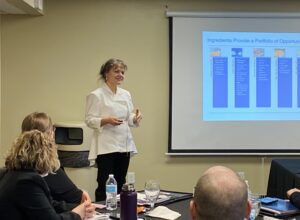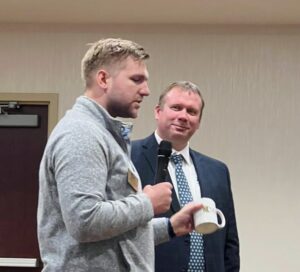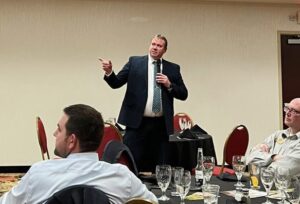MARL Class XI engages with legislators, educators, and others in St. Paul
Seminar 10 of MARL Class XI was recently held Wednesday, February 16 through Friday, February 18 in St. Paul. While this seminar typically would have been held earlier in MARL programming, prior to the Washington D.C. experience, the sequence of experiences and seminar locations was changed to allow for this critical seminar to be held in person, as opposed to in a virtual setting. A total of 26 MARL Class XI participants attended the three-day seminar, primarily held at the newly renovated Capitol Radisson.
Wednesday was a packed half-day experience, beginning with a short briefing and preparations for the upcoming international trip to Ecuador. Given that this is the final seminar prior to our departure, we asked any pressing questions and received our headset which will assist with hearing presenters and translators. From this briefing, it was clear to sense the excitement and nervousness of cohort members regarding what lies ahead.
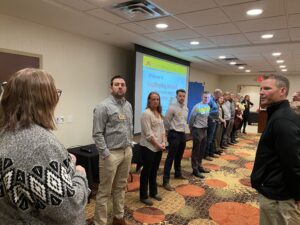
Seminar content then began, focusing on providing effective leadership for meetings and committee work. Knowing that an average American spends approximately 4 hours a week in meetings, while an average executive spends 23 hours a week in meetings reiterates the value of strong meeting preparation and facilitation. In this afternoon session, we learned how to get the most out of meetings and facilitate different meeting situations and behaviors successfully. Various tools were modeled for MARL participants and we engaged in interactive learning experiences to try them out personally
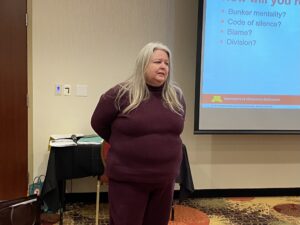
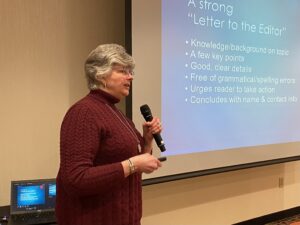
Following the session on facilitation, two guest speakers presented to our cohort. Allison Sandve. News Media & Public Relations Manager for UM Extension spoke about how to communicate key messaging in a crisis. In small groups, we roleplayed a scenario to put into practice the content. Paula Mohr, Editor of The Farmer and MARL Class VI participant, provided a look into why and how to successfully write a letter to the editor. She highlighted keep steps to getting published and emphasized that writing a letter to the editor may be a good way to communicate about an issue of importance to an audience we may not be currently be engaging with.
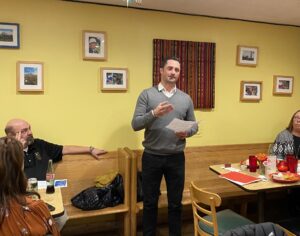
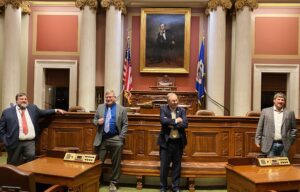
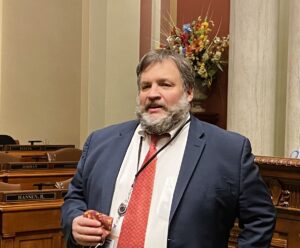
After dinner as a class at Chimborazo, an Ecuadorian restaurant – to prep for the upcoming Ecuador study trip-, we transitioned to a guided nighttime tour of the Capitol. This was a highlight for many, with few having the opportunity to see the Capitol and learn about its rich history before. Brian Pease, who works for the Minnesota Historical Society, shared information about the history and architecture of the Capitol. Because this tour happened after hours, we were given us a unique perspective without the hustle and bustle of crowds and activities, and truly had a chance to take in the beauty of the facility. At the conclusion of the tour, we were greeted by a panel of three legislators (Rep. Paul Torkelson, MARL Class IV; Rep. Paul Anderson, and Rep. Nathan Nelson, MARL Class VII) and Minnesota Department of Agriculture (MDA) Commissioner, Thom Petersen. Each shared their agricultural connections and leadership journey and responded to a wide range of questions regarding leadership, persuasive style, and life before/after public service.
